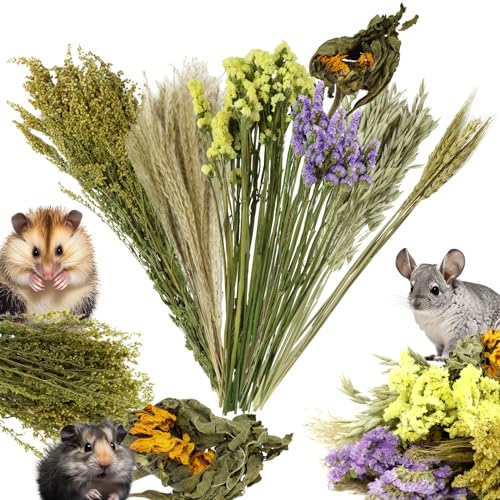RDZCRanch
RavenousDeadlyZombieChins
Well, one is sitting on my bed demanding skritches.
One male. This year alone, my standard lines have already given me five standard males. These are high quality, pure standard males and I'll be lucky if I can sell one. I had somebody call because they wanted a black velvet along with a violet. The only way I could get them interested in taking a standard male instead was to offer one for free. If I wholesale, I get between $25-$40 per standard male and in reality that is a heck of a lot more than $0.
I do agree that standards, especially males, can be harder to home, I've heard that from several breeders (my chin's breeder also told me that beige males are a bit harder to home than other mutations). Still, if people will buy them from the petshop, they'd buy them from the original breeder too, surely - most pet owners seem to have standard greys.
Could awareness be the main issue, would it make it easier if breeders advertised more? Perhaps they could arrange with a petstore for the petstore to refer anyone wanting a chinchilla to them, the breeder providing the store with up-to-date information (and photos if possible) on the animals they have available. The petstore could then receive a commission on the sale of any animals made through a referral from them (the breeder would still make more than if they sold directly to a petstore. The commission would have to be enough to make it worth the petstore's while, also taking into account they would then not have to house or care for the animals themselves). Breeder's directories, chin people attending other small animal shows (not necessarily taking chins, just info., I think that's something the NCS is trying to do. We have regional secretaries but maybe we should have a directory too, hmm - thanks to the internet that kind of thing can so easily be up to date), anything like that could help breeders find homes for animals.
I spent many years advertising in the same areas as a backyard breeder that lived down the street from me. I usually had standards and a few of the basic mutations available since I typically don't breed for multiple mutation colors. My prices were lower, my awards and background are posted online for all to see. The pictures of my animals showed healthier, fluffier animals. Yet, the BYB with more "fun" colors, ratty and greasy unhealthy chinchillas, and higher prices sold her babies faster than she could produce them. It has nothing to do with awareness. I have some friends that get business from being listed on breeder directories online...and others that don't get any business. I've been to pet expos and basically chased out for being an "evil" breeder. Pet expos are for rescues. We also have a chinchilla breeder that also breeds guinea pigs. She gives information to people at the guinea pig shows and none of them are interested in anything other than their guinea pigs.
I think the most important thing is that prospective new owners get the right information. If a breeder who sells to a petshop can make sure the petshop will give that, then that's not so bad. Sure, they may ignore it, but at least then they're more informed - I really don't think it's in the best interests of chin or new owner if someone buys one without knowing the lifespan, for instance, they may still manage fine but it'd be a bit of a shock if you didn't realise that you just bought an animal that will outlive the average dog!
Of course a screening process can't enable a breeder to be totally sure a chin is going to a good home. However, it does allow them to be sure an owner at least knows how to care for a chinchilla, and to rule some people out. I appreciated being asked questions by my chin's breeder, it showed me he cared where his animal's ended up, if he hadn't asked me questions I would have been considerably more reluctant to buy a chin from them.
This is simple education, not screening. Every breeder I've ever been to, even the BYB's educate people on what THEY think is correct husbandry and what not. I give a care sheet with every chinchilla, I have listings on my website for safe chinchilla vendors, I tell everyone who calls me about chinchillas everything I can think of about chinchillas. It doesn't make the slightest difference how well you educate someone. You cannot guarantee they are listening or will follow any of the advice. I helped a friend get two 4 week old babies from a guy that was selling them as "weaned" and the entire time I was there he went on and on about what I HAVE to feed them and HAVE to do to keep them healthy. I nodded and said "of course" several times and pretended to pay attention when I had no inclination of following even one bit of advice he gave me. When I was on the other side of his front door with the babies, I laid into him about proper care and selling babies and got a door slammed in my face. People can know the right way to do things, but they want to do it THEIR way because no one likes to be wrong.
No, since chinchillas are kept as pets I do appreciate the knowledge gained about the species, even relatively recently a lot has and continues to be learned. However, it's maybe better to be realistic - if I understand correctly many ranchers were (and sometimes still are) very anti-pet. The (protected) wild chinchilla wasn't taken out of it's habitat so we could have them as pets (not automatically in the interests of the species anyway).
You are mistaken. Most ranchers are not against pet people anymore. Once upon a time it was frowned upon and people were even threatened with having their ECBC memberships canceled if they were found to be selling on the pet market. The pelt market took a dive though and the ranchers found they could sell chins as pets for a much higher fee. That is the only reason the pet chinchilla market ever took off in the first place in the states. Money. That's also the reason chinchillas continue to be sold in pet stores.
I also have to agree with Dawn. The chins that end up in rescues are the ones that didn't cost the person much money to begin with. The people constantly looking for cheaper and cheaper chins or saying "I want this kind of chin but can only pay $X so what do you have?" are the people that are impulsive and tend to stop caring for the chins after the initial excitement wears off. There are a lot of scenarios for rescue chinchillas, but not many of them come from pet stores. Most of my rescues come from people who got a cheap or free chin off CL or from a BYB.





















































